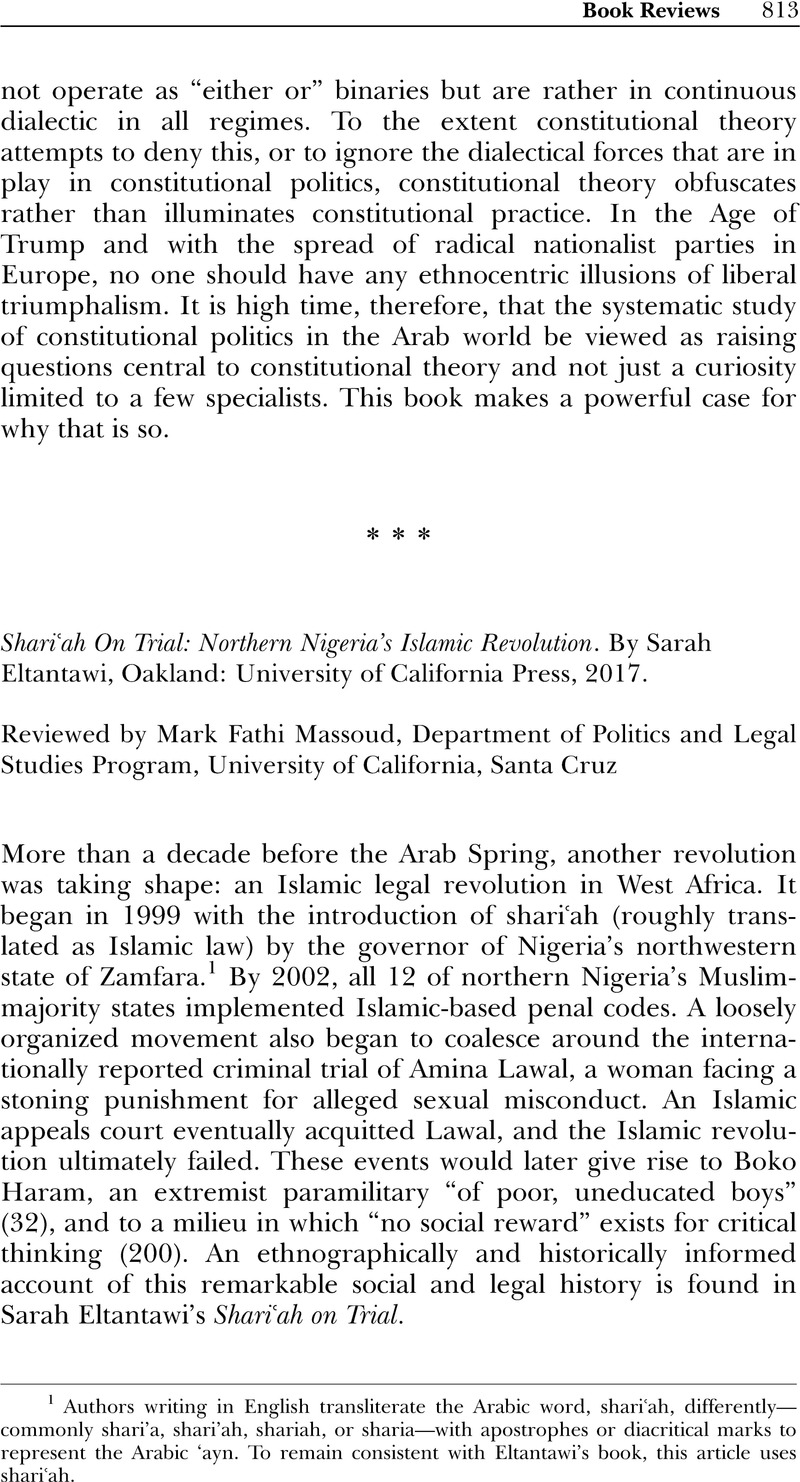No CrossRef data available.
Published online by Cambridge University Press: 01 January 2024

1 Authors writing in English transliterate the Arabic word, shariʿah, differently—commonly shari'a, shari'ah, shariah, or sharia—with apostrophes or diacritical marks to represent the Arabic ‘ayn. To remain consistent with Eltantawi's book, this article uses shariʿah.